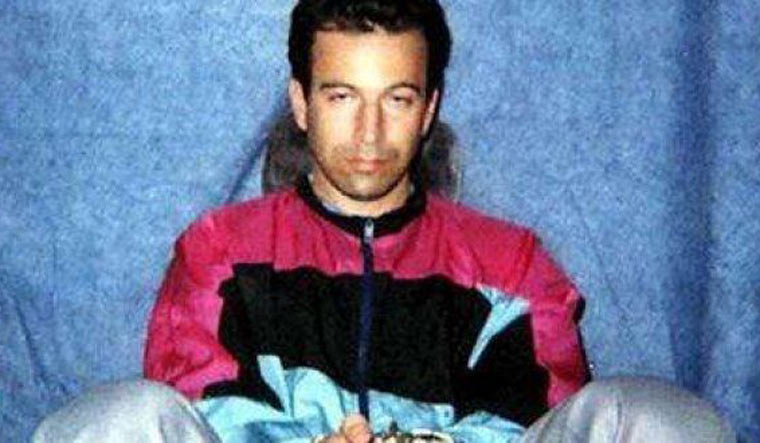The parents of slain American journalist Daniel Pearl filed an appeal to Pakistan’s Supreme Court seeking reversal of the Sindh High Court verdict that overturned convictions of four men in their son’s kidnapping and murder case.
Pearl, the 38-year-old South Asia bureau chief for The Wall Street Journal, was abducted and beheaded while he was in Pakistan investigating a story in 2002 on the alleged links between the country’s powerful spy agency ISI and al-Qaeda.
On April 2, a two-judge Sindh High Court bench overturned the death sentence of British-born 46-year-old al-Qaeda leader Ahmed Omar Saeed Sheikh, who was convicted in the abduction and murder of Pearl in 2002. He has been in jail for the past 18 years.
The court also acquitted his three aides—Fahad Naseem, Salman Saqib and Sheikh Adil—serving life sentences in the case. The bench announced the verdict on the appeals filed by the four convicts 18 years ago.
Two criminal petitions have been filed by renowned lawyer Faisal Siddiqi on behalf of the parents—Ruth Pearl and Judie Pearl—against the acquittal and release of the four accused, the Express Tribune reported on Saturday.
“The decision by the Sindh High Court to free the men in the murder of Daniel Pearl is a complete miscarriage of justice. It is a defining case for the Pakistani state and its judicial system, involving freedom of the press, the sanctity of every life, freedom from terror and the manifestation of a welcoming and safe Pakistan to the world. Rarely has any court case embodied and risked such fundamental values,” the lawyer said.
According to the petition, the Sindh High Court has failed to note that this was a brutal murder as a result of international terrorism and the principle of the standard of proof, as well as the benefit of doubt in cases of international terrorism, has to be applied keeping in the context that the nature and type of evidence available in such terrorism cases cannot be equated with cases involving non-terrorism crimes.
“Therefore, it is obvious and apparent that the impugned judgment is clearly erroneous because it is fundamentally based on a misinterpretation of law and misreading of the entire record of Special Case No.26 of 2002,” the petition stated, and added that the impugned judgment is liable to be set aside.
The petition stated that the court further erred in failing to take into consideration that Sheikh has a history of involvement in international terrorism.
The petition further states that keeping in mind the arguments, the judgment is fundamentally based on a misinterpretation of the law and on a misreading and selective reading of the entire record of the case.
Siddiqi further added in the petition submitted that the provincial high court’s judgment, has itself held that the present case is a “very sensitive case where a foreign journalist was murdered in the most brutal circumstances that would have spread terror amongst other foreigners in Pakistan and the journalist community as a whole”.
“Therefore, in light of its own finding and the strong incriminating evidence establishing the case for kidnapping for ransom of the deceased person, Sindh High Court has erred in giving the aforementioned findings,” said the petition.
Two days after the Sindh High Court overturned Sheikh’s conviction on April 2, the Sindh government invoked the Maintenance of Public Order to keep the convicts in jail.
Pearl’s murder took place three years after Sheikh, along with Jaish-e-Mohammad chief Masood Azhar and Mushtaq Ahmed Zargar, was released by India in 1999 and given safe passage to Afghanistan in exchange for the nearly 150 passengers of hijacked Indian Airlines Flight 814. He was serving prison term in India for kidnappings of Western tourists in the country.
The Sindh government filed an appeal to the Supreme Court against the High Court decision on April 22, and on April 28 asked for an early hearing.
“The matter is of great urgency, therefore, the application for the suspension of April 2 Sindh High Court judgement be heard as early as possible,” it said in its application.


